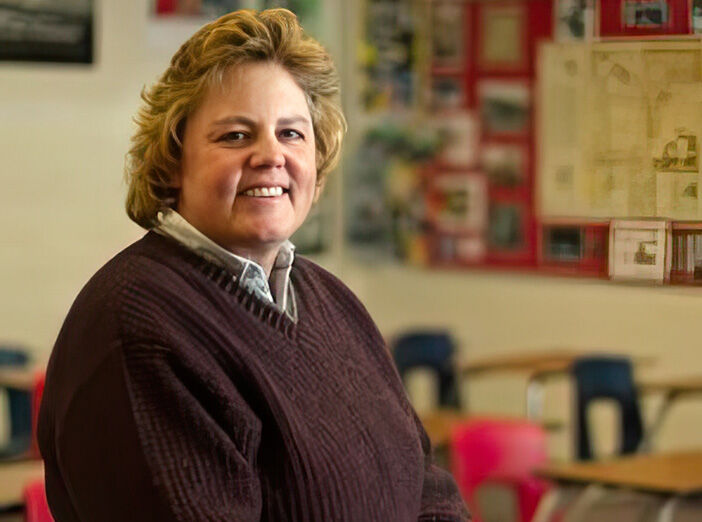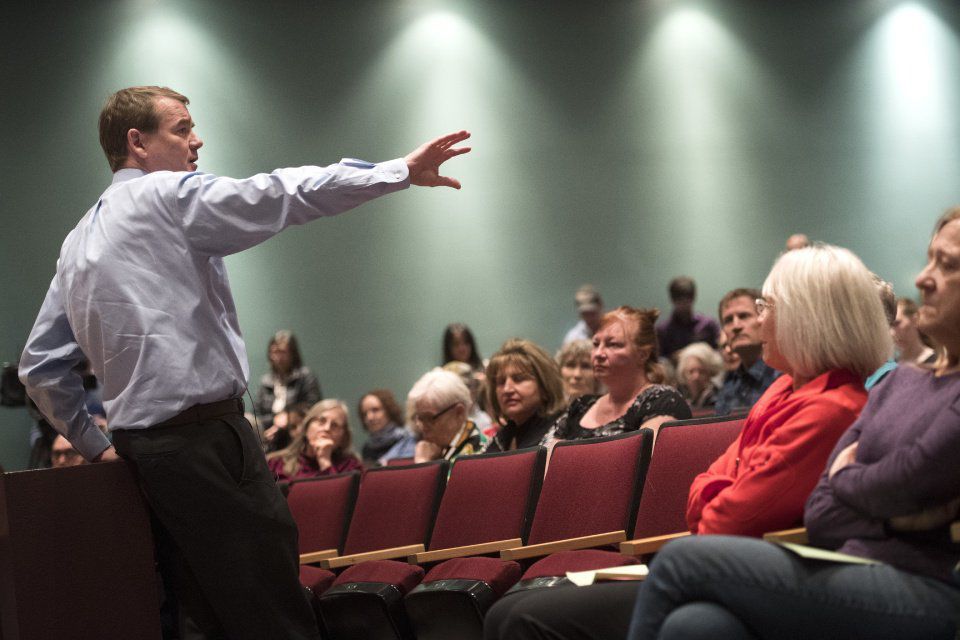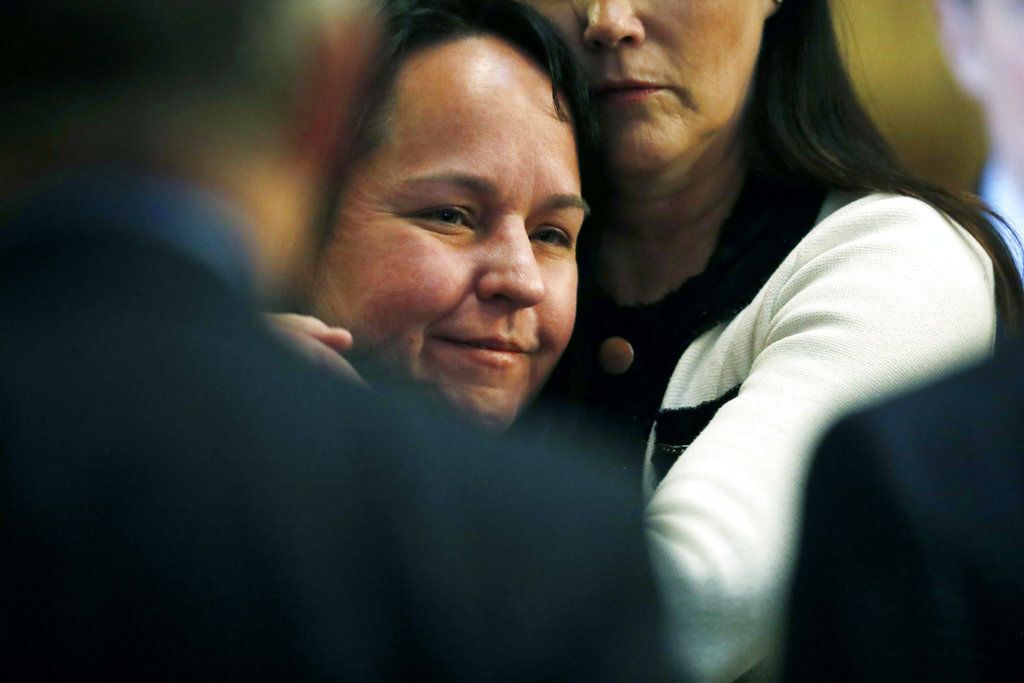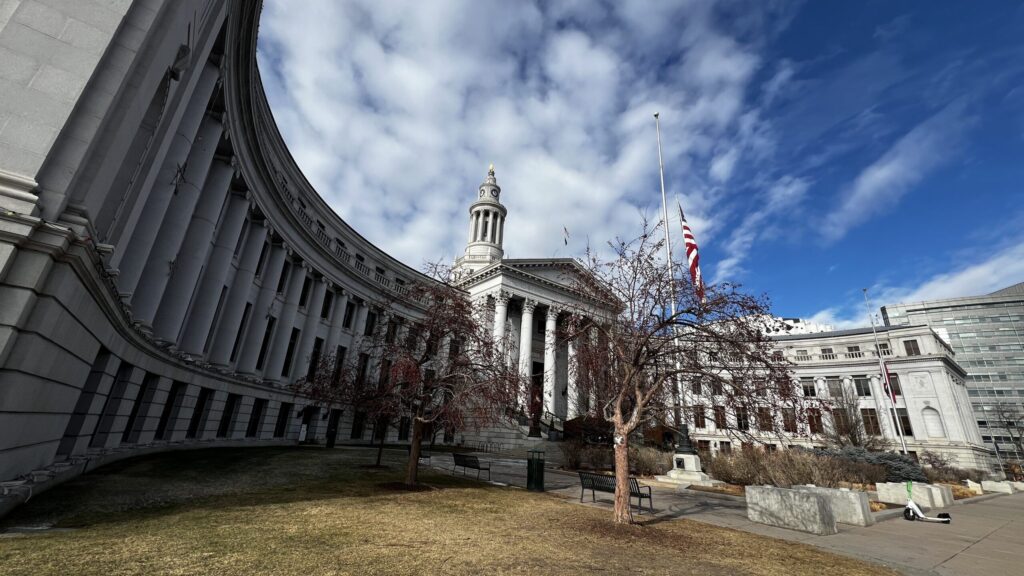New approach to Rocky Mountain grizzlies sought ahead of 2nd Trump presidency | OUT WEST ROUNDUP
WYOMING
New approach to grizzlies sought
CHEYENNE — Environmental groups are asking the U.S. government to do more to protect Rocky Mountain grizzly bears before the next Trump administration decides the big bruins’ future.
Earthjustice and other groups petitioned the U.S. Fish and Wildlife Service on Dec. 11 to take steps to connect the bears’ separate populations. They want federal wildlife officials to encourage grizzlies to roam from the Yellowstone ecosystem in Wyoming across parts of Idaho and Montana to the area in and around Glacier National Park.
Expanding the habitat of grizzlies doesn’t sit well with many ranchers whose cattle and sheep can be their prey. Ranchers plan to press President-elect Donald Trump’s incoming administration to remove protections for bears — not encourage their spread.
Fish and Wildlife faces a court-imposed deadline of Jan. 20 — the same day Trump will retake office — to decide whether to continue to protect grizzlies as a federally designated threatened species. U.S. District Judge Alan Johnson in Cheyenne set the date on Dec. 6, almost a year after the service missed its own deadline to decide the matter.
Colorado officials outline 'conflict minimization' efforts ahead of next gray wolves release
The previous Trump administration briefly removed federal protections for grizzly bears but was blocked by courts. Wyoming, Montana and Idaho all still seek to have grizzlies’ federal protection removed in favor of state management. That would likely lead to new plans for grizzly hunting, similar to how the three states now allow the hunting of wolves that were reintroduced to the region.
Since their listing as federally protected threatened species in 1975, the Rocky Mountain grizzly population has doubled to around 2,000 animals. But they still face a range of threats, and the 73 grizzly deaths attributed to or possibly caused by people in the Yellowstone region this year are the most on record, according to Earthjustice.
Bill would allow concealed carry at schools
CHEYENNE — A bill filed for the 2025 general session would create an “enhanced” concealed carry firearm permit that would allow qualified permit-holders to conceal carry on K-12 school campuses, as well as Wyoming university and college campuses, without needing written consent from campus security.
Sen. Ed Cooper, R-Ten Sleep, the bill’s sponsor, said the idea for this bill was brought to him by a “really strong gun advocate” from the Bighorn Basin. Concealed carry is currently not permitted in Wyoming public school districts, although some school boards adopted policies that allow teachers to concealed carry in the classroom.
The constituent told the representative he wanted to be able to concealed carry when he drops his son off at school, Cooper said. If a person with a concealed-carry permit shot somebody on school campus, they’d still be arrested under current Wyoming statute.
Magistrates, lawyers discuss youth, guns and responses to school safety
Cooper’s proposal would require at least eight hours of firearms training within the last 12 months and demonstrated proficiency with a firearm in order for applicants to qualify for an enhanced concealed carry permit.
Unlike a regular concealed carry permit, an enhanced concealed carry permit holder would be allowed to concealed carry their firearm onto any public school campus, according to the propose legislation.
The bill will be considered during the 2025 general session, which starts Jan. 14.
ARIZONA
Saudi firm sued over groundwater pumping
PHOENIX — Arizona Attorney General Kris Mayes announced on Dec. 11 she’s suing a Saudi Arabian agribusiness for allegedly violating a public nuisance law, contending that its groundwater pumping threatens the public health, safety and infrastructure of local communities in a rural western county.
The complaint filed in Maricopa County Superior Court alleges that the pumping at a Fondomonte Arizona, LLC. alfalfa farm has had widespread effects in the Ranegras Plain Basin of La Paz County, harming everyone who depends on basin water by drawing down supplies, drying up wells and causing the ground to crack and sink in some areas.
The lawsuit is the latest action by Arizona against foreign companies that use huge amounts of groundwater to grow thirsty forage crops for export because of climate challenges in other countries. Rural Arizona is especially attractive to international businesses because it has no groundwater pumping regulations.
Fight over fracking near Aurora Reservoir erupts
The lawsuit alleges that since 2014, Fondomonte has extracted huge amounts of water that accelerated depletion of the basin’s aquifer. The company is a subsidiary of Saudi dairy giant Almarai Co.
“We find the allegations of the Attorney General totally unfounded, and we will defend any potential action against Fondomonte and our rights vigorously before the competent authorities,” Fondomonte said in a statement.
Mayes’ lawsuit alleges that Fondomonte’s actions are a public nuisance under a state statute that prohibits activity that injures health, obstructs property use, or interferes with the comfortable enjoyment of life or property by a community.
NORTH DAKOTA
Underground carbon dioxide storage OK’d
BISMARCK — North Dakota regulators approved permits on Dec. 12 for underground storage of carbon dioxide delivered through a massive pipeline proposed for the Midwest, marking another victory for a project that has drawn fierce opposition from landowners.
The governor-led Industrial Commission voted unanimously to approve permits for Summit Carbon Solutions’ three proposed storage sites in central North Dakota. Summit says construction of the project would begin in 2026 with operations beginning in 2027, but it’s expected that resistant landowners will file lawsuits seeking to block the storage plans.
Summit’s proposed 2,500-mile, $8 billion pipeline would transport planet-warming CO2 emissions from 57 ethanol plants in North Dakota, South Dakota, Iowa, Minnesota and Nebraska for underground storage. Carbon dioxide would move through the pipeline in a pressurized form to be injected deep underground into a rock formation.
The company has permits for its route in North Dakota and Iowa but can’t yet begin construction..
Environmentalists file lawsuit against Suncor refinery claiming government inaction on pollution
Summit faces several lawsuits related to the project, including a North Dakota Supreme Court appeal over a property rights law related to the underground storage plan. Further court challenges are likely.
Summit’s project has drawn the ire of landowners around the region. They oppose the potential taking of their property for the pipeline and fear a pipeline rupture releasing a cloud of heavy, hazardous gas over the land.
Carbon capture projects, such as Summit’s, are eligible for lucrative federal tax credits intended to encourage cleaner-burning ethanol and potentially result in corn-based ethanol being refined into jet fuel.











